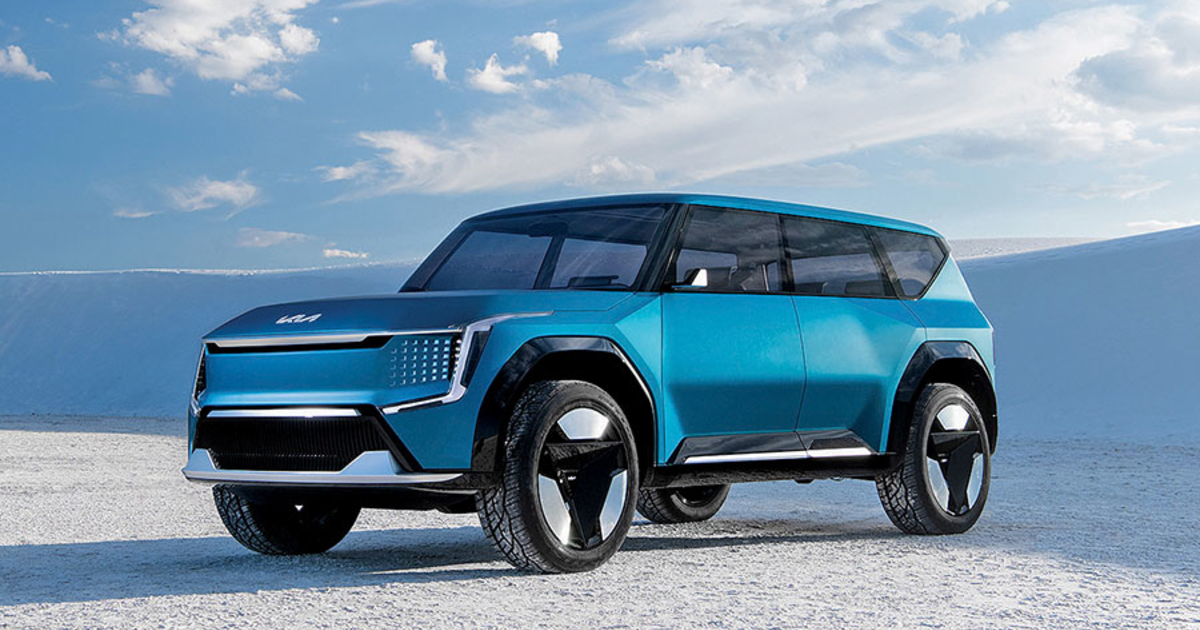
Kia hasn’t said whether production of its EV9 three-row electric vehicle will be shifted to a U.S. factory from Korea when it comes online in the fall to qualify for $7,500 in federal tax credits. But James Morrell, chairman of the Kia Dealer Advisory Council, said there’s no way to deal with the new law without building the EV9 in the U.S.
The private reveal of the new EV9 at last year’s NADA meeting was the brand’s “biggest excitement,” said Morrell, who has been head of the dealer council since 2019.
“It’s an EV that people can get behind,” Morrell told Automotive News. “It’s not some wacky, small, futuristic-looking vehicle that’s only going to appeal to a small niche. It’s a seven-passenger SUV that’s electrified so there’s going be a huge demand for it.”
But the complex new requirements of the Inflation Reduction Act were a buzzkill on dealers’ anticipation.
“There’s a lot of trepidation from headquarters and from the dealers on introducing a new, much more expensive EV that was priced and marketed based on the benefit of the $7,500,” Morrell said.
Last year, Hyundai Motor Group committed to invest $5.5 billion in a U.S. electric vehicle and battery complex, what it’s calling its Metaplant, just outside Savannah, Ga. That plant will build Hyundai, Genesis and Kia electric vehicles starting in the first half of 2025. The batteries, which will come from an unknown supplier, won’t be ready until 2026.
Hyundai hasn’t said what vehicles will come from the Metaplant, but its schedule for opening is well after the EV9’s late 2023 start of production.
Morrell said Hyundai moved so quickly on the plant’s groundbreaking after the news of the law broke, dealers hope it might retool Kia’s plant in West Point, Ga., just over an hour from where the Metaplant is under construction, to build EVs.
Kia’s three-row Telluride and K5 sedan, as well as the gasoline models of the Sorento and Sportage crossovers, are built at Kia Georgia, but no investment has been made to produce electrified vehicles such as hybrids or EVs. Both the Sorento and Sportage have gasoline-electric hybrid and plug-in hybrid variants imported from Korea.
“When cars are built in North America, it makes a tremendous impact for us, so we would love to see production of hybrids and/or EVs in the United States,” he said, adding that the automaker has not announced anything of that nature.
“Kia increased the production line for Telluride and they added a production line to build Sportages,” Morrell noted. “They just keep moving in that direction, which just makes long-term sense.”